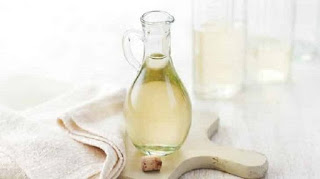Vinegar is sometimes used as a household cleaner because its main ingredient, acetic acid, can help break down and kill some types of germs. However, it is likely not the best option.
Vinegar is not registered with the Environmental Protection Agency (EPA) as an effective household disinfectant, and is not recommended in place of most commercial cleaning products.
For example, the Centers for Disease Control and Prevention (CDC) recommends disinfecting surfaces with a dilute bleach solution, or alcohol solutions made with at least 70% alcohol.
But if vinegar is the only option, it still has some effectiveness, as it has some antiseptic properties.
Vinegar is not the best option for killing viruses
Because the Environmental Protection Agency regulates household disinfectant products, such as bleach, they are tested and proven to kill bacteria and viruses, but vinegar is not an agency-registered disinfectant.
Dr. Alex Berezo, vice president of scientific communications at the American Council on Science and Health, says that while vinegar does have some antiseptic properties, it’s not as effective as standard household cleaners.
“I really don’t know why anyone would use vinegar when there are a lot of cleaning products on the market that are so effective,” Perezo adds.
The acidity in vinegar makes it useful as a cleanser because it dissolves as effectively as soaps and polishes surfaces. However, it is not strong enough to effectively disinfect surfaces, according to the Centers for Disease Control and Prevention.
Berezo points out that disinfectants containing isopropyl alcohol or bleach are better, and you can clean surfaces with your own bleach or alcohol solution.
Even regular soap and water are more effective than vinegar, says Perezo. To prevent the spread of the coronavirus, the CDC recommends that visibly dirty surfaces be cleaned with soap and water and then disinfected with a dilute bleach solution, alcohol solutions or an EPA-registered household disinfectant.
The acetic acid, the main ingredient in vinegar, helps break down dirt and chemically alter the makeup of germ cells. Distilled white vinegar, the type found in grocery stores and commonly used for cleaning, contains about 4% to 7% of acetic acid, while apple cider vinegar and wine vinegar contain about 5% to 6% of acetic acid.
Vinegar has some antiseptic properties. For example, a 2010 study found that 10% of barley vinegar is effective against the influenza virus. A 2014 study published in the Journal of the American Society of Microbiology found that a 10% solution could kill the bacteria that cause TB.

